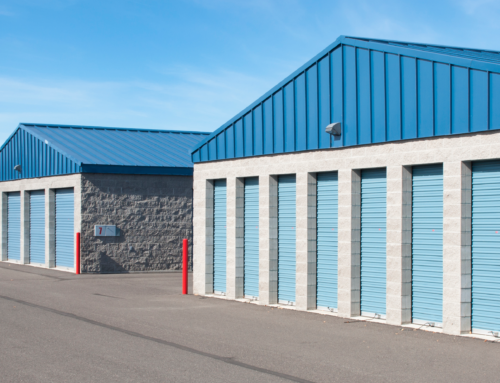The day-to-day tasks associated with running a retail business would keep anyone busy. That’s why the last thing any retailer wants are issues associated with a loss being added to their to-do list. That’s where retailer insurance comes in.
With so many coverage options out there, it’s hard to figure out where you should start. Here are five key coverages that we recommend every retailer should consider for their business:
Commercial General Liability Insurance
You can clear the paths leading into your store, lay down extra skid-resistant mats at your entrance, and place “wet floor” signs wherever you like. But despite your best efforts, someone may injure themselves on your property. And you could be held liable for that, which could then lead to you finding yourself involved in a costly lawsuit.
That’s why commercial general liability insurance, or CGL for short, is so important. As the foundation to any liability insurance program for business owners, CGL insurance is designed to protect you if you’re found legally liable for bodily injury or property damage to a third party.
Commercial Property Insurance
While you’re busy making sales, you also need to be prepared for the possibility of hazards such as fires, floods, and vandalism.
You can and should take precautions to mitigate these risks, including steps such as putting together an emergency contact list, having the necessary equipment to deal with fires or flooding, and increasing security measures. But sometimes, even that isn’t enough.
Commercial property insurance provides protection not only for your building, but also for many of its contents, such as equipment, furniture, fixtures, tools, machinery, and property of others.
Cyber Risk Coverage
In 2022, nearly half of all small businesses in Canada (45 per cent) had experienced a random cyberattack in the past year, while 27 per cent experienced a targeted attack, according to a survey by the Canadian Federation of Independent Business (CFIB).,
Smaller companies are often easier for cyber criminals to target, as they may not have the same high-tech defense measures in place as larger businesses do, such as network firewalls, two-factor authentication, and fraud protection tools. Smaller businesses may even be targeted as a way for hackers to gain access to larger vendors or customers.
These incidents can have major financial impacts, resulting in lost revenue and productivity, as well as unexpected costs related to breach response and recovery. There could also be costs associated with notifying customers that their data has been lost or compromised.
Some retailers may think their current insurance policy covers cyber through property or liability coverages. But since data is not considered a tangible property, it’s typically excluded under a property policy.
Cyber risk insurance is specifically designed to help protect small businesses from certain losses related to cyberattacks and data breaches. This could include helping cover incident response expenses, data recovery expenses, and public relations services.
For example, if your business is hacked and personally identifiable customer information is stolen, cyber risk insurance can help with the costs of legal claims, network repairs, and public relations services so you can get back to business as quickly as possible.
Comprehensive Crime Coverage
As a retailer, crime should be one of the top risks you’re on the lookout for. Organized retail crime costs Canadians over $5 billion a year, according to statistics from the Toronto police. Their stats also say that 87 per cent of independent retailers fall victim to this kind of crime.
As if that wasn’t bad enough, some of that theft is happening because of your own employees. According to the CRA, 75 per cent of employees admit to stealing at least once from their employer.
So what can you do to deal with these risks? Federated’s comprehensive crime insurance protects against employee dishonesty and the loss of money and securities due to robbery, burglary, and hold-ups. We also offer services to help you improve your security measures, which can help minimize your exposure to risk.
Additionally, you can always take preventative measures yourself. Ensuring you have adequate lighting, installing security cameras, using electronic tags on your merchandise, and placing expensive items near your checkout are all good steps to take.
Business Interruption Insurance
After something goes wrong, the worst may be yet to come. If you suffer a loss or damages, your business may be unable to operate for some time. And that lost time can lead to lost profits.
Thankfully, that’s where business interruption insurance comes in. You can collect the income you would have expected to generate, were it not for the unexpected event. The policy may also cover your normal operating expenses, and extra expenses in order to expedite your return to business or limit your losses.
Protect yourself and your business
Risk and retail go hand-in-hand. But so do comfort and coverage. As a retailer, you have a lot on your plate already. Worrying about property damage, liability lawsuits, and cyberattacks shouldn’t consume your days. Retailer insurance can help. To learn more about protecting yourself and your business, visit our retailer insurance page today.
This blog is provided for information only and is not a substitute for professional advice. We make no representations or warranties regarding the accuracy or completeness of the information and will not be responsible for any loss arising out of reliance on the information.






